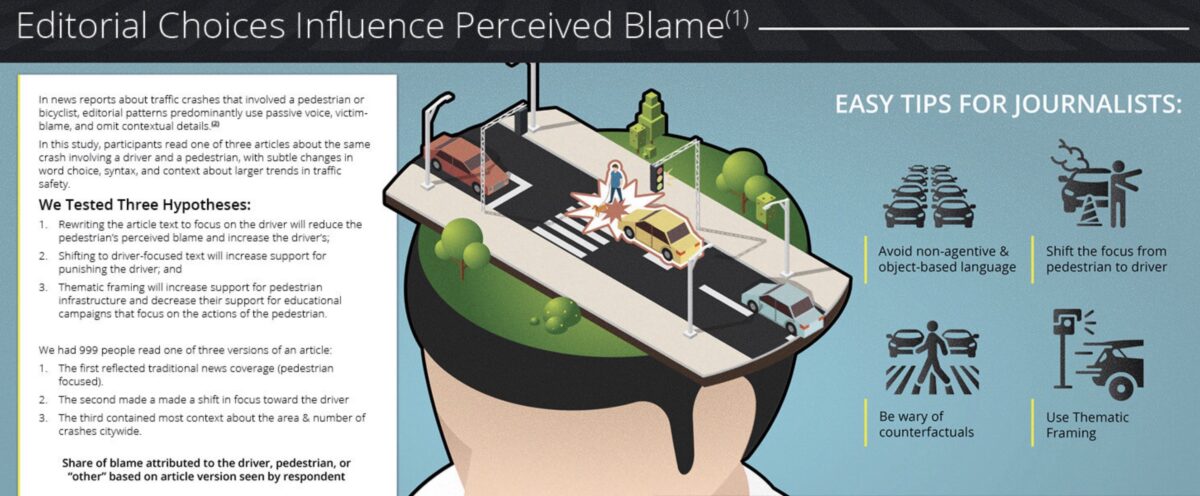
The Multnomah County Health Department wants their staff and the community to think more about framing and word choice when dealing with traffic crashes.
“How the media reports on traffic crashes influences the public’s perception of who’s to blame and the best solutions.”
— Scott Moshier, Multnomah County
“We, like you, are concerned about the alarming increase in deaths and serious injuries from traffic crashes across the Portland metro. As we face this growing, tragic, and preventable health crisis, we know how important it is to engage the public to foster change,” reads an email from Multnomah County Environmental Health Specialist Scott Moshier about an event his department will host on March 2nd.
As readers of this site have known for years, the language we use when we speak and write about traffic violence can either help fix the problem, or add to it by blaming victims and absolving instigators.
And it’s not just us who’ve been making this point even louder in recent years.
Over the past few years, transportation reform activists have made headway on this language problem, convincing organizations like the AAA-Auto Club Group to refer to driving-related deaths and injuries as “crashes” instead of “accidents.”
As traffic fatalities in Portland continue to rise at an unacceptable rate, it is especially imperative to hone in on word choices when describing these situations.
Advertisement
The County’s training session, titled, News Reporting on Traffic Crashes: An Online Presentation/Discussion with Advocates, will include a presentation by Melissa Balmer of Pedal Love, who’s created a toolkit and a media tip sheet for people who want to change the public narrative about traffic crashes and roadway safety.
Balmer’s toolkit is based on research published in 2019 by Tara Goddard, Kelcie Ralph, Calvin G.Thigpen, and Evan Iacobucci.
We recently looked at another tool that was developed for this purpose: the Vision Zero Reporting project. Projects like these are helping change the narrative surrounding crashes and other forms of traffic violence so it gets treated like a problem that can and should be changed — and not just an unfortunate fact of life.
“Intriguing recent research supports what advocates have long known. How the media reports on traffic crashes influences the public’s perception of who’s to blame and the best solutions,” the MCHD press release says.
The training, which will be held on March 2 from 11:00 am to 12:30 pm, is free and is open to the public. You can sign up here.
We’ll check it out, too, and report back what we learn.

